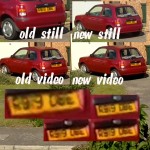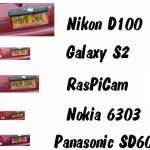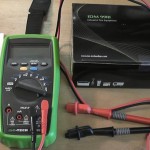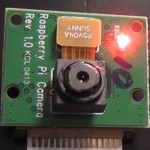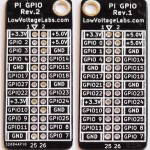
Jamie over at The Pi Hut sent me one of these little GPIO reference cards to evaluate. Beautiful in its simplicity. I love the idea. It gives you a close at hand reference for the P1 GPIO header on the Pi, showing which pin is which GPIO port (and which aren’t). It’s perfect for use with an uncased Pi, but stumbles a bit when used with cases – mind you, that’s an occupational hazard of cases. In any case, GPIO work is generally hindered. (Pun intended.) The above shot is my Toxic Pibow in “GPIO […more…]




